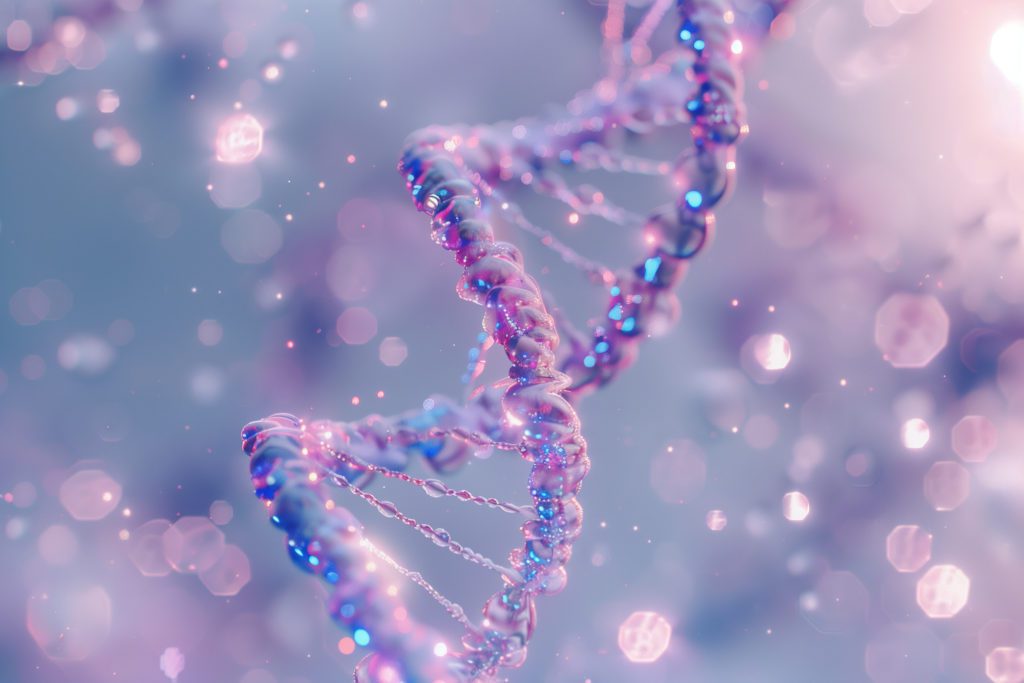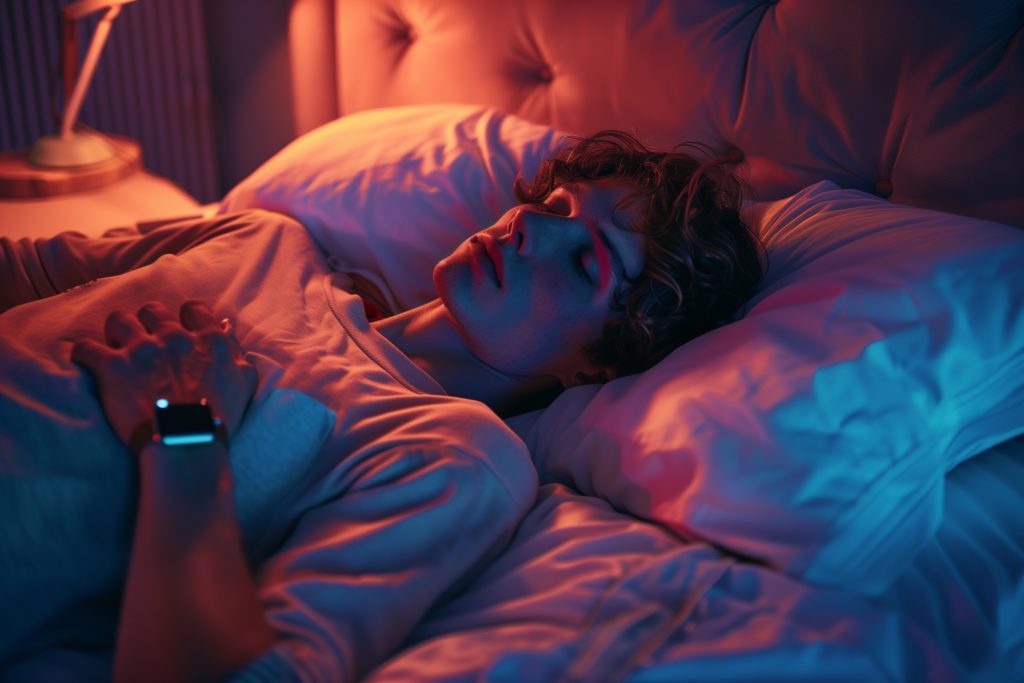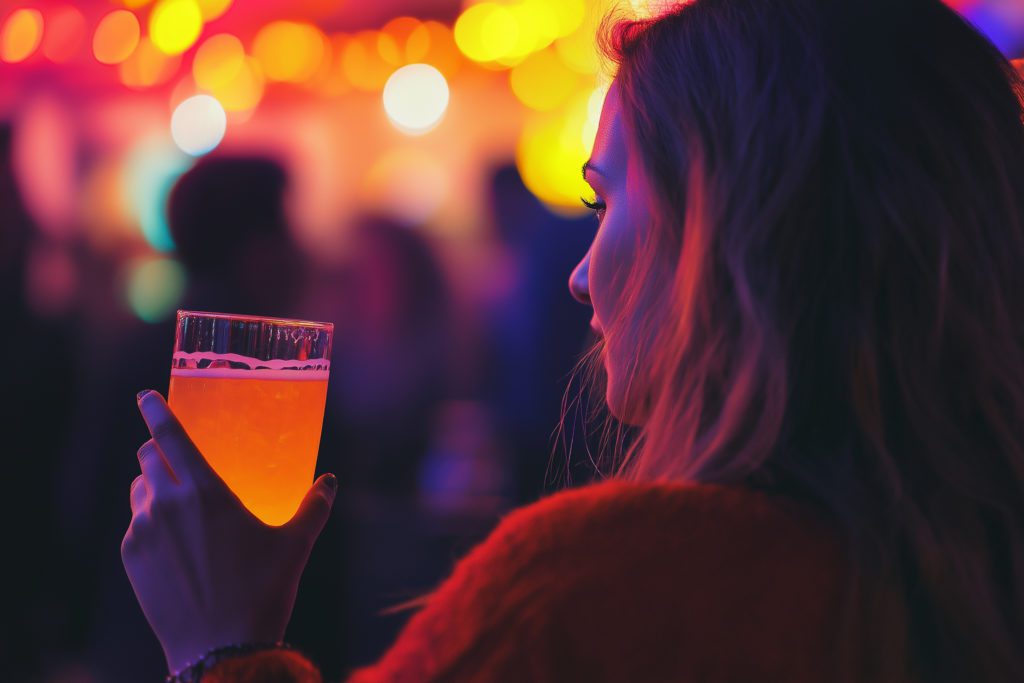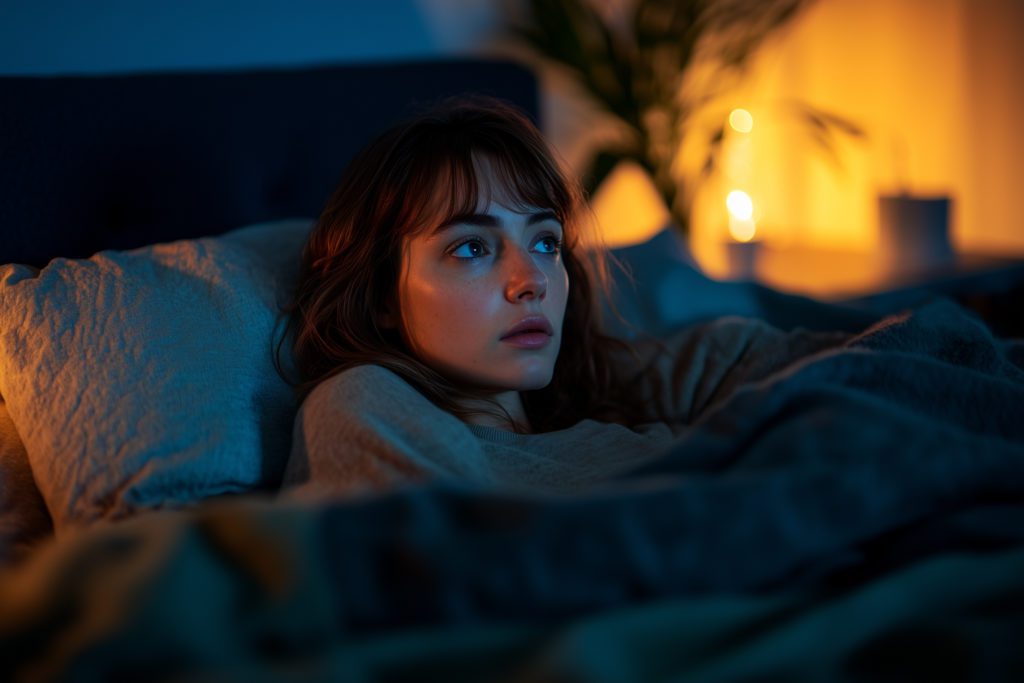
The Science of Beauty Sleep: How Rest Affects Your Appearance
The idea of beauty sleep is backed by scientific research. Getting enough sleep impacts your skin and hair. Here’s how to get your nightly beauty rest.
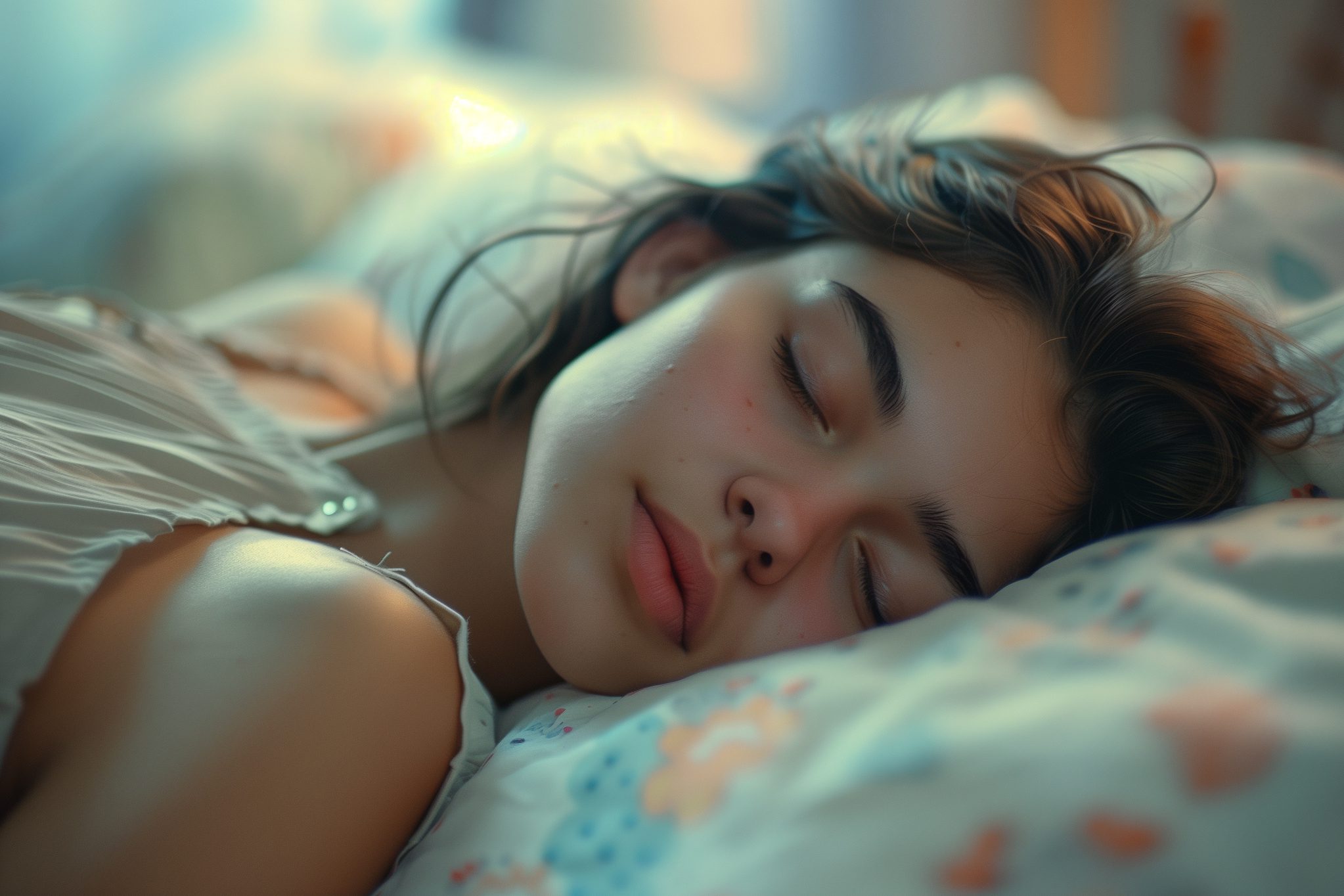
You’ve no doubt been told to get your “beauty sleep.” So, is it a real thing? Does sleep affect your appearance? The answer is a resounding yes! There’s some science and research to back up the idea of “beauty rest.” A lack of sleep affects your appearance.
Sleep deprivation tends to show up in the face first. A dull complexion and dark undereye circles are two unmistakable signs of sleep deprivation. But, a bad night’s slumber can affect more than just your face. It can even negatively impact your social life too.
The Science of Beauty Sleep
Sleep can affect how attractive others view you and also how likely they are to interact with you. One study found that adults who were sleep-deprived were rated as less attractive by their peers. 122 adults enrolled in the study were asked to rate photographs of people based on how attractive they thought the person to be. They were also asked to rate how likely they were to socialize with the person. Participants who were sleep-deprived were rated as less attractive. In addition, the raters were less likely to socialize with the sleep-deprived persons.
What Happens to Your Skin When You Sleep?
While you are catching your Z’s, your body is busy repairing itself and regenerating cells. During the nighttime hours, your body’s largest organ, the skin, is being repaired from the day’s damage. The body builds collagen and repairs UV damage to the skin.
Your body also produces several hormones while you are asleep that aid in healthy-looking skin. These include cortisol, melatonin, and the human growth hormone. These hormones all help repair skin damage and protect from free radicals.
During sleep, the skin also gets more blood flow. This causes vasodilation and helps promote healthy-looking skin when you wake up.
Sleep also helps your body clear out waste products and toxins through a process called lymphatic drainage. This contributes to healthier skin. Finally, sleep helps reduce inflammation that affects the skin.
How Sleep Affects Your Hair
Sleep also affects your hair growth. When you sleep, you produce collagen. This helps strengthen your hair. You also produce the human growth hormone while you are fast asleep, which is important for hair growth. Finally, when you don’t get enough sleep, it hinders your body’s ability to regenerate hair follicles. Sleep deprivation also leads to increased cortisol (the stress hormone) levels, which can cause hair breakage and loss.
How Much Sleep Do You Actually Need?
Sleep is essential for well-being, as well as appearance. The amount of sleep that you get each night affects your skin health. When it comes to sleep, the magic number of hours is between seven and nine for adults. However, it’s not always easy to get the recommended amount. More than 70 million people in the U.S. are sleep-deprived, according to the National Institutes of Health (NIH).
How To Get More Beauty Sleep
It’s important to aim for a full night of sleep — that’s between seven to nine hours a night for adults. You can effortlessly track your sleep using Pillow. Struggling to get enough sleep? Making a few small changes to your sleep habits can improve the quantity and quality of your sleep. You might also notice improvements in your skin, hair, and nails too.
Embrace a Nighttime Ritual
One of the easiest ways to get your beauty rest is to create and consistently follow a calming nighttime routine. This could include things like practicing bedtime yoga, listening to an adult bedtime story, or reading a book. You can also include a healthy skincare routine that is designed for overnight skincare. That way, you can wake up looking your best.
Avoid Afternoon Caffeine Use
Can’t live without your morning cup o' Joe? That’s fine, just avoid caffeine use in the afternoon and late in the evening. Aim to drink your last cup of coffee no more than eight hours before bedtime.
Nap Smartly
If you take a nap during the day, limit it to 30 minutes or less, or try a short power nap. Longer naps can interfere with your sleep. Also, avoid napping late in the day, as this can throw off your sleep schedule. Try to take your nap at the same time each day.
Exercise (even if you don’t feel like it)
Working out might be the last thing you feel like doing — especially after a hard day at work. But, exercise is one of the best ways to improve your sleep, according to science. Regular exercise can, in fact, significantly improve insomnia symptoms. Just make sure you finish more strenuous workouts at least two hours before bedtime.
Sleep on Your Back
Sleeping on your side or stomach can affect your skin (especially if your pillow is cotton). If comfortable, try to sleep on your back to minimize the amount of time that your face comes into contact with your pillow. If you just can’t sleep on your back, then switch to a satin or silk pillowcase, which will minimize skin compression and irritation.
Take a Warm Shower
Taking a nice warm shower or bath before bed can help you unwind and fall asleep easier. A warm shower actually lowers your body’s core temperature, which signals to your body that it’s time for bed.
In addition, taking a shower before bed can reduce wrinkles and keep your skin looking healthier. The steam from the shower improves circulation and triggers your skin to start producing collagen. It also helps eliminate dead skin cells and clear the pores.
Pay Attention to When (And What) You Eat and Drink
Avoid large meals within three hours of bedtime. That will allow plenty of time for food to digest so that you sleep better. If you are hungry, opt for a light snack if it’s close to bedtime. Choose sleep-promoting snacks that contain melatonin like kiwis. As for drinks, try a decaffeinated herbal tea like chamomile before bed.
Healthy Sleep Equals Healthy Skin
People spend a lot of time — and money on skincare products. But, we should be paying more attention to how we sleep. Getting enough sleep is the key to fresh, healthy skin. Making a few simple changes to your sleep habits can help you get more beauty sleep.
FAQ
Can poor sleep contribute to hair loss?
Yes, lack of sleep increases cortisol levels, which can weaken hair follicles, leading to shedding and slower growth. Sleep deprivation also reduces blood flow to the scalp, depriving hair of essential nutrients. Over time, chronic sleep issues may contribute to thinning hair and breakage.
Does sleep position impact skin aging?
Sleeping on your stomach or side can cause repeated pressure and friction on your face, leading to sleep lines and wrinkles over time. Back sleeping minimizes this effect by reducing contact between the skin and the pillow, preventing premature aging and skin creases.
Can a lack of sleep make the skin more sensitive?
Yes, sleep deprivation weakens the skin’s natural barrier, making it more prone to irritation, redness, and breakouts. It also increases inflammation, which can worsen skin conditions like rosacea or acne. Poor sleep may also lower the skin’s ability to retain moisture, leading to dryness.
Does napping during the day help counteract sleep deprivation’s effects on skin?
While naps can reduce stress and inflammation, they don’t fully replace the deep sleep cycles needed for skin regeneration. Short naps (20-30 minutes) can help refresh the body, but consistent nighttime sleep is crucial for collagen production and skin repair.
How does sleep deprivation affect skin hydration?
Poor sleep weakens the skin’s ability to retain moisture, leading to dryness and a dull complexion. It also increases water loss through the skin, making it more prone to irritation. Getting enough rest helps maintain hydration levels, keeping the skin soft and resilient
Can sleep deprivation increase acne breakouts?
Yes, lack of sleep can contribute to acne by increasing stress hormones, which trigger inflammation and excess oil production. Sleep deprivation also weakens the immune system, making it harder for the skin to fight bacteria and heal blemishes, leading to more frequent breakouts.

Written by
Emily Mendez
Emily Mendez is a former therapist and mental health author. She is one of the leading voices in mental health. Emily's writing has appeared in eCounseling, SonderMind, and more. Emily is frequently interviewed by Healthline, Fatherly, INSIDER, Family Circle, and other national media for her advice and expert opinion on the latest mental health topics.
Download Pillow
Get help
Press & News
Legal
Connect
X (Twitter)
Company
Copyright © Neybox Digital Ltd.
